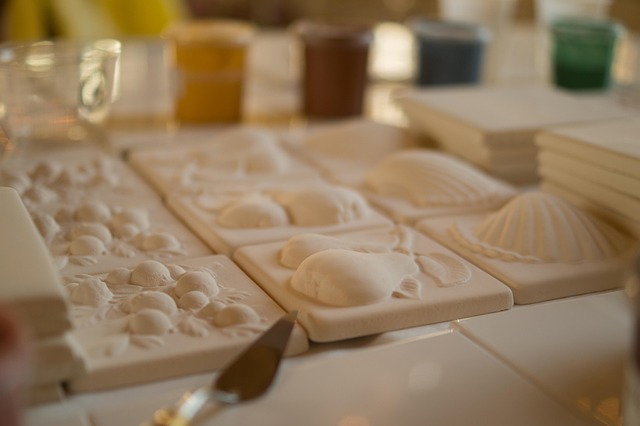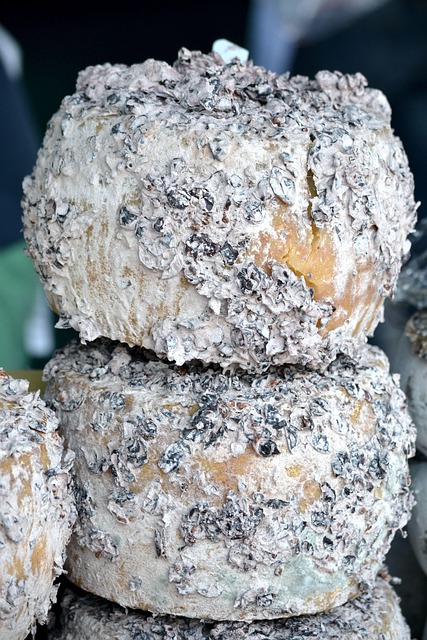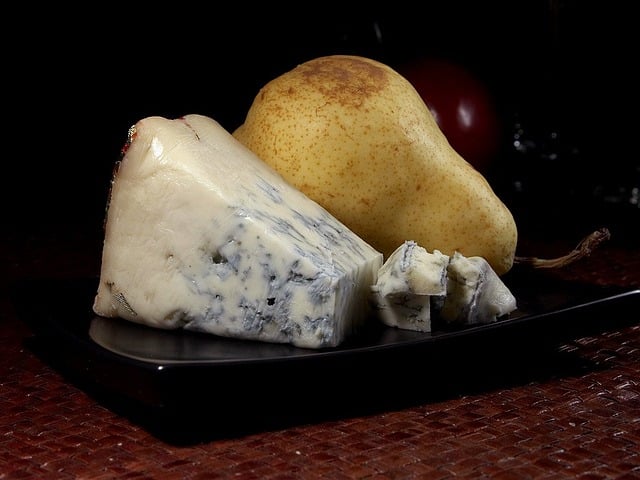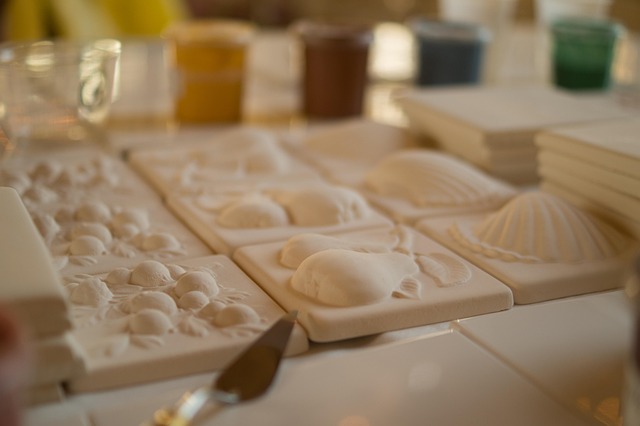Grout sealing is a critical process for maintaining clean, healthy spaces, particularly in high-moisture areas like bathrooms and kitchens. It acts as a shield against mold growth, stain infiltration, and water damage by creating an impermeable barrier within grout crevices. This proactive measure enhances grout durability, prevents discoloration, and saves homeowners time and money on costly repairs. Professional grout care involves understanding moisture's impact, with various sealing solutions tailored to specific space needs, traffic volumes, and moisture exposure. The right sealer selection is key, offering superior protection against mold and stains for different grout materials, from cement to epoxy. Effective grout sealing is a game-changer in both commercial and residential settings, ensuring vibrant, healthy, and stain-free environments.
Professional Grout Sealing Solutions: Protecting Your Commercial Space from Mold and Stains
In commercial spaces, grout sealing is more than just an aesthetic concern. It’s a critical defense against mold growth and stain accumulation, which can compromise health and safety as well as increase maintenance costs. This comprehensive guide explores the importance of grout sealing, types of solutions available, preventative measures, selection considerations, application techniques, and real-world success stories, empowering you to make informed decisions for your space.
Understanding Grout Sealing: The First Line of Defense Against Mold and Stains

Grout sealing is a critical component of maintaining a clean, healthy, and aesthetically pleasing space, especially in high-moisture areas like bathrooms and kitchens. It’s more than just an aesthetic treatment; grout sealing acts as the first line of defense against mold growth and stain infiltration. Over time, grout can absorb moisture and become a breeding ground for mold and mildew, which not only compromises air quality but also weakens the structural integrity of surfaces.
By applying a high-quality grout sealer, you create an impenetrable barrier that prevents moisture from settling into the tiny crevices of grout. This proactive measure is crucial in preserving the longevity of your grout and surrounding tiles. Grout sealing not only guards against mold and stains but also enhances the overall durability and resilience of your flooring or wall tile system, ensuring it remains vibrant and free from unsightly discoloration for years to come.
The Impact of Moisture on Grout: Why Sealing is Crucial

In the realm of professional grout care, understanding the impact of moisture is key. Grout, by nature, is porous, making it susceptible to absorbing water and humidity. This inherent characteristic can have detrimental effects over time as moisture facilitates the growth of mold and mildew, leading to unsightly stains and potential health risks. Moreover, moisture infiltration weakens the grout’s structural integrity, accelerating its deterioration process.
Sealing emerges as a powerful solution to mitigate these issues. Effective grout sealing creates an impermeable barrier, preventing water and moisture from penetrating the grout lines. This proactive measure not only safeguards against mold and stain formation but also extends the lifespan of the grout, preserving the overall aesthetic and value of surfaces it adorns. In today’s world, where indoor spaces are increasingly designed with open layouts and abundant natural light, addressing grout maintenance proactively is more important than ever to ensure a vibrant, healthy, and visually appealing environment.
Types of Grout Sealing Solutions: An Overview for Commercial Spaces

Grout sealing solutions come in various forms, each designed to address specific challenges in commercial spaces. For instance, epoxy grout coatings are popular choices for high-traffic areas like floors in restaurants and retail stores due to their durability and resistance to chemicals. These coatings not only seal the grout but also provide an easy-to-clean surface, which is crucial for maintaining a hygienic environment.
On the other hand, silicone-based grouts offer excellent water resistance, making them ideal for areas prone to moisture, such as bathrooms and pools. They effectively prevent mold and stains from forming within the grout lines, ensuring the longevity of the flooring. The choice between these types depends on the specific needs of the commercial space, including traffic volume, exposure to moisture, and desired maintenance levels.
Preventative Measures: How Regular Sealant Maintenance Can Save You Time and Money

Regular grout sealing maintenance is a crucial preventative measure that can save you significant time and money in the long run. By applying a protective layer to your grout, you create a barrier against moisture, dirt, and other contaminants, which are the primary catalysts for mold growth and staining. This simple yet effective step not only prolongs the life of your grout but also prevents costly repairs or replacements down the line.
Imagine avoiding the hassle and expense of re-grouting your tiles due to mold or stains. With regular sealant application, you can keep your spaces looking fresh and pristine, ensuring a more durable and low-maintenance surface. This proactive approach is particularly beneficial in high-traffic areas like bathrooms and kitchens, where grout is constantly exposed to water and potential dirt tracks.
Choosing the Right Sealer: Considerations for Different Grout Types

When selecting a grout sealer, understanding your grout type is key. Different grout materials, like cement, sand, or epoxy, require specific sealers to ensure optimal protection. For example, silicone-based sealers are highly effective against moisture and mold for cement grout, while water-repellent solutions are ideal for sanded grout to prevent stains from liquids and grease. Consider the environment: humid spaces may necessitate a more robust sealer than dry areas. The right choice will create a protective barrier, maintaining the aesthetic appeal of your grout while preventing unsightly mold and stains.
Application Techniques: Ensuring Effective Grout Sealing

Grout sealing is a critical step in maintaining ceramic and masonry surfaces, especially in high-moisture areas like bathrooms and kitchens. Professional grout sealing solutions employ advanced techniques to ensure effective protection against mold, stains, and water penetration. These methods include both surface treatments and deep penetration sealers.
Surface treatments involve applying a liquid sealer that forms a protective coating on the grout’s surface. This technique is quick and easy but offers limited protection against deep staining. In contrast, deep penetration sealers absorb into the grout to create a barrier from within, providing superior mold and stain resistance. Professionals often prefer this method for its longevity and effectiveness in preventing water damage, which is key to grout sealing to prevent mold and stains.
Case Studies: The Success of Grout Sealing in Real-World Scenarios

Grout sealing has proven to be a game-changer in numerous real-world applications, showcasing its effectiveness in various scenarios. In commercial settings, such as busy restaurants and high-traffic malls, grout sealing has been instrumental in maintaining hygiene standards by preventing mold growth and stain absorption. By applying specialized sealants, these spaces remain clean and presentable, ensuring customer satisfaction and a positive environment.
Residential projects also highlight the success of grout sealing. In homes with humid environments, like bathrooms and kitchens, sealing prevents water penetration, which leads to less mold development and easier maintenance. This not only enhances the aesthetic appeal but also extends the lifespan of grouted surfaces, providing long-lasting protection against stains and moisture damage.
